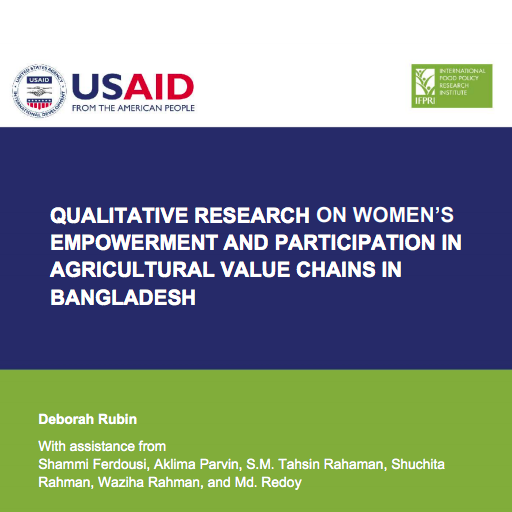In Bangladesh, IFPRI has received support from USAID through its Policy Research and Strategy Support Program in Bangladesh (PRSSP) to work in the geographic areas targeted by Feed the Future interventions (known as the Zone of Influence) to construct this new WEAI4VC module. The qualitative research study, conducted by IFPRI field officers, complements a 1,200 household quantitative survey, looking in greater depth at the individual, household, and community level experiences of men and women to understand the consequences of value chain participation on them as producers, entrepreneurs, and wage workers on women’s empowerment. The quantitative study sampled 400 households for each of the three economic activities of interest – (1) agricultural production, (2) agricultural entrepreneurship, and (3) agriculture sector employment. It was carried out in ten administrative units (upazilas or sub-districts), and five villages in each upazila to total 50 villages.
The qualitative research also seeks to understand how existing social values and cultural practices shape participation of men and women in these roles. It is expected that these results will help USAID/Bangladesh design programs that can achieve a higher level of women’s empowerment from their engagement in agricultural value chains and food systems.

